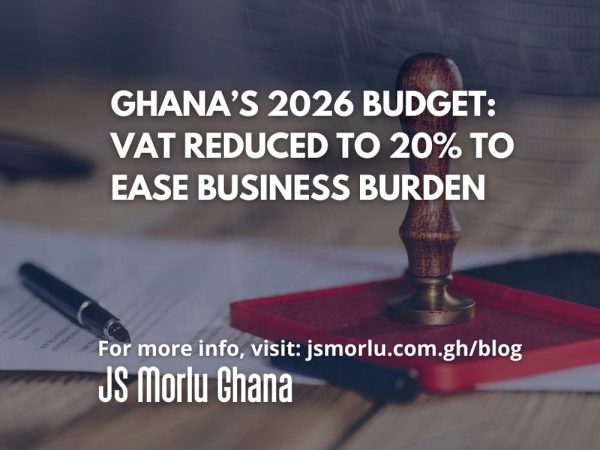The Government of Ghana has introduced a series of tax reforms in the 2026 Budget aimed at creating a simpler, fairer, and more business-friendly fiscal environment. Finance Minister Dr. Cassiel Ato Forson presented the budget to Parliament, highlighting reforms designed to make tax compliance easier for businesses while boosting domestic revenue mobilisation.
“This is not just a tax reform. It is a step toward a more just, predictable, and business-friendly economy,” Dr. Forson stated. “It honours our pledge to lighten the load on honest taxpayers while building a stronger foundation for national development.”
Key VAT Reforms
Among the headline measures in the 2026 Budget:
- VAT Reduction: The effective Value Added Tax (VAT) rate has been lowered from 21.9% to 20%, providing relief to businesses and households.
- VAT Registration Threshold Increase: Small and medium enterprises (SMEs) with annual turnover below GH¢750,000 are now exempt from VAT registration, up from GH¢200,000.
- Abolition of COVID-19 Health Recovery Levy: This levy has been removed to ease the financial burden on businesses.
- Sector-Specific Incentives: VAT on mineral exploration and reconnaissance has been eliminated to attract investment, while zero-rating for locally manufactured textiles has been extended to 2028 to protect local employment.
These reforms are expected to return approximately GH¢5.7 billion to businesses and households, enhancing Ghana’s economic competitiveness.
Strengthening Compliance and Transparency
To improve compliance, the government plans to deploy digital VAT monitoring systems, fiscal electronic devices, and a VAT reward scheme. These tools aim to enhance transparency, reduce evasion, and incentivize timely tax payment.
Additionally, a comprehensive review of major tax laws including the Income Tax Act, Customs Act, and Excise Duty Act is underway to align Ghana’s tax framework with international standards. The review seeks to simplify compliance, promote fairness, and strengthen investor confidence.
Dr. Forson also announced the implementation of advanced systems at ports to curb smuggling, under-invoicing, and misclassification, closing long-standing revenue leakages and improving customs efficiency.
“Through these reforms, we are not merely raising revenue,” Dr. Forson emphasised. “We are rebuilding trust between citizens and the state, ensuring that every cedi collected is used to build the Ghana we want.”
Implications for Businesses and the Economy
The 2026 tax reforms form a central part of Ghana’s fiscal consolidation agenda, aiming to sustain macroeconomic stability while promoting private sector growth and job creation. By reducing VAT and simplifying compliance, the government seeks to create an environment where businesses can thrive, investment is encouraged, and honest taxpayers are rewarded.
